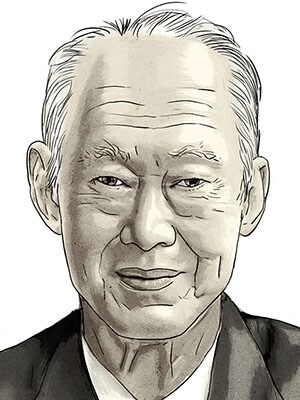
Mao Promoted Perpetual Struggle; Deng Saved China from Chaos
Mao’s successor drew lessons from Singapore’s economic development
On October 1, 1949, at the Gate of Heavenly Peace in Beijing, Mao Zedong, leader of the Communist Revolution, declared the founding of the modern People’s Republic of China. Mao was an idealist who strove for constant class struggle as a way to keep the Chinese from becoming bourgeois. At the height of the Cultural Revolution, in 1967-69, schools and universities were closed, and children were encouraged to hit and rebel against their parents. Mao was, of course, a famous leader and liberator, but he was less practical when it came to governing the country.
More practical was Deng Xiaoping, who quietly took control after Mao’s death, calmed the country and concentrated on its economic development. Were it not for him, China might well have broken apart.
In November 1978, Deng made his first and only visit to Singapore. What he saw on that visit changed the course of economic policy in the coastal provinces of China. At dinner he congratulated me on Singapore’s accomplishments. I told him that with its wealth of talent China could surpass Singapore.
Deng warned us of the Russian bear using Vietnam as its cat’s paw to control Southeast Asia. I told him that the Soviet Union was far away but all the exhortations for the overthrow of local governments in Southeast Asia were coming from broadcasting stations in China and that the arms finding their way to the insurgents were being provided by China. He unexpectedly asked, “What do you want me to do?” I replied, “Stop it!” He responded, “Give me time.” A year later the broadcasts stopped. Deng may have been short of stature, but he was a giant of a leader.
Equal To The Challenge
Inspired, Deng returned home to form four special economic zones, which he opened to foreign investment and world trade. These zones prospered, and more subsequently opened. (This trend culminated in China joining the WTO in 2001.)
In 1992, Deng went to Guangdong and told the people, “Learn from the world, especially from Singapore. There is good social order there. They govern with discipline. We should draw from their experience—and we will do even better than they.” Those comments resulted in hundreds of delegations from all over China descending on Singapore, ready to study the ins and outs of our economic development.
We, however, felt the best way for China to learn our methods was through the practical experience of a joint project, building an industrial park for business, commercial, residential, leisure and industrial purposes. The Suzhou Industrial Park project began in 1994. We invited a few hundred Chinese officials to come study our methods; then we sent them back with some of our experts, who helped with the implementation and made sure the Chinese got things right. Suzhou became a model of how to industrialise while keeping an industrial park green and clean.
Students now come from China to Singapore every year to take the ‘Mayors’ Class’ at the Nanyang Centre for Public Administration. Students are upper-level officials in the central and local governments or in state-owned enterprises and are chosen by the Communist Party. The one-year course is conducted entirely in Chinese. Former cabinet ministers who have played a role in Singapore’s development share their expertise with the students. In 2010, another school, the National University of Singapore’s Lee Kuan Yew School of Public Policy, also began accepting senior Chinese officials as students.
When Deng said to his people, “We will do even better than they”, he had not forgotten what I had said during his visit. Deng believed China was equal to the challenge—and within 20 years China proved him right.
Lee Kuan Yew is a former Prime Minister of Singapore
(This story appears in the 30 November, -0001 issue of Forbes India. To visit our Archives, click here.)





